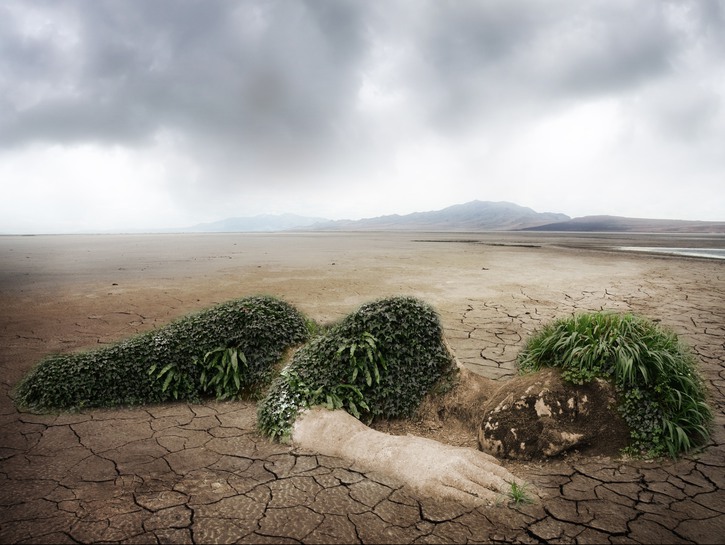
If you have the time to travel to another continent quickly and inexpensively, why wouldn’t you explore the world?
Videos by TravelAwaits
So many people in the highest income countries have been bitten by the travel bug, especially now that digital devices keep us tethered to our work and families wherever we may be. But questions loom when travel affects the people and the places we visit. Travel can degrade locals’ standard of living as valuable resources are turned over to tourists, foreign workers come in to work for much smaller wages, and natural wonders are overrun with sightseers.
That’s fairly micro, but there’s nothing minor about it.
New findings on the impact of global tourism are chilling. Dr. Arunima Malik from the School of Physics at the University of Sydney went beyond carbon dioxide emissions from airplanes and automobiles to consider other “significant contributors” that add to tourism’s effect on the environment. Her team studied tourists’ consumption in 160 countries, including eating out, shopping, transportation, hotels, and other accommodations.
After a year combing through the data from 2009 to 2013, a damning portrait of tourism’s full impact emerged.
The conclusion? Travelers’ collective carbon footprint is increasing by half a billion metric tons each year, currently totaling nearly 8% of greenhouse emissions around the world. That’s four times worse than originally thought.
So… what can we do to minimize the damage we do to the planet while exploring it?
Which countries lead tourism’s carbon footprint?
Even though American tourists are more likely to travel within our own country, we are still contributing the most to greenhouse emissions. Other high income countries share this dubious distinction.
What are travelers to do?
Stop feeling guilty about your wanderlust obsessions, but work to fulfill them with more care. A major part of the growth in tourism is fueled by social media. Sure, it’s wonderful to follow glowing, exotic Instagram accounts and YouTube vloggers, but look beyond the edges of the frame. Question the bigger picture before following or commenting. Why did that beautiful, skinny model drive a golf ball towards her local caddie and giggle while he cringed? What did it take for that blissfully smiling couple to hug a clearly drugged tiger? Do you really want to party with hundreds on a remote beach without considering the mess being left behind?

Cruise ships are a major cause of tourist pollution. Wikimedia Commons
Where are your tourist dollars going?
The era of “Europe on $10 dollars a day” is long gone. Prices at the most popular destinations are pushing the cost of living higher and forcing locals to live further from city centers. That means more pollution from commuting. You can help by visiting destinations that are less impacted by tourism.
For example, fans of Game of Thrones have been over-running the medieval city of Dubrovnik, where some scenes from the show are filmed. The influx has seriously strained water resources, created noise pollution, and crowded streets built hundreds of years ago for a much smaller population. Cruise ships account for much of this traffic, and while there has been a 2% drop in the number of ships docking at the Port of Dubrovnik in 2018, the ships are larger with a 4% increase in the number of passengers.
An eco-conscious traveler could arrange to visit during the shoulder season when fewer tourists overwhelm the city, or exchange that city for another such as Split, which has Game of Thrones shooting locations as well but isn’t as busy. Look into smaller ship options and carefully navigate around river boat tours to see how many dock at villages at a time.
Cruising offers great value for money but what does it take to keep prices low? What are the conditions on board for the staff? Are they being paid a living wage? Banquets and buffets are splendid ,but are the sources of those crab legs and shrimp cocktails sustainable or do they support over-fishing and poor labor conditions?
After several scandals, cruise lines are trying to reduce their environmental footprint. But considering how the ships are built and licensed, it’s difficult for forward-thinking countries to manage and track practices. Which country is responsible for ensuring that ballast, grey and black water, chemical pollution, solid waste, and oil are not being spewed out of ships?
New technologies are stepping in to help. Wastewater and organic combustible waste can be converted into useful energy with new appliances such as the MAGS and WETT systems. Is your favorite cruise line investing in and using them? Have they installed “scrubbers” to remove sulfur, black carbon and particulates from smoke stacks?
You can do some research by clicking this link, though the most recent available information is from 2016.

Dubrovnik, one of the cities most negatively affected by tourism. Wikimedia Commons
Preserving the wild world
Getting close to indigenous wildlife is one of the most exciting reasons to travel. It may take a bit of time, but verify that company standards fit with what they practice. Consider where those adorable tiger cubs come from and what happens to them once they grow up. The industry is rife with green-washing, and not everyone who appears to be wearing a white hat actually is. Ask Tourism Officials before you book your encounter. When scuba diving in glorious tropical waters, ask if the dive outfit hires local dive masters and trains them on best practices to preserve marine environments. Are dive masters empowered to reprimand customers who interfere with or hurt wildlife?
Look in the mirror first
If you love to travel, think about what you can personally do to promote conscious adventures and reduce the impact of tourism. Purchase carbon credits for your flights and transportation. There are many companies who will help you calculate and set this up such as carbonfootprint.com.
Consider the gear you use. Reduce plastics any way you can by carrying a reusable water bottle with a purification system. Much has been made of plastic straws and not using them is a step forward, but what other single-use plastics are in your life? On the road, eat locally instead of dining at international chain restaurants. Travel lightly when you pack. With less weight, you’ll reduce the amount of fuel needed to get around, especially on the road.
There’s no reason that with each traveler’s help, the next time a team of scientists looks at tourism’s carbon footprint the numbers can be headed in the right direction — down. Happy trails!
